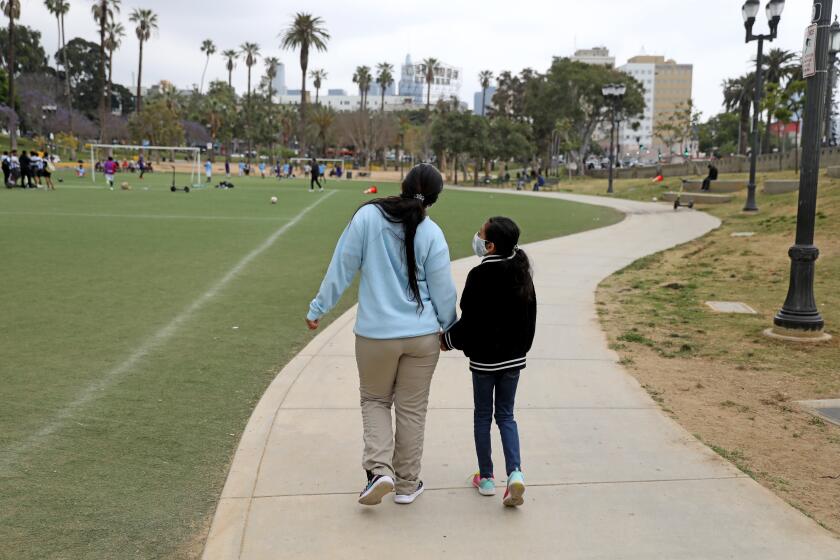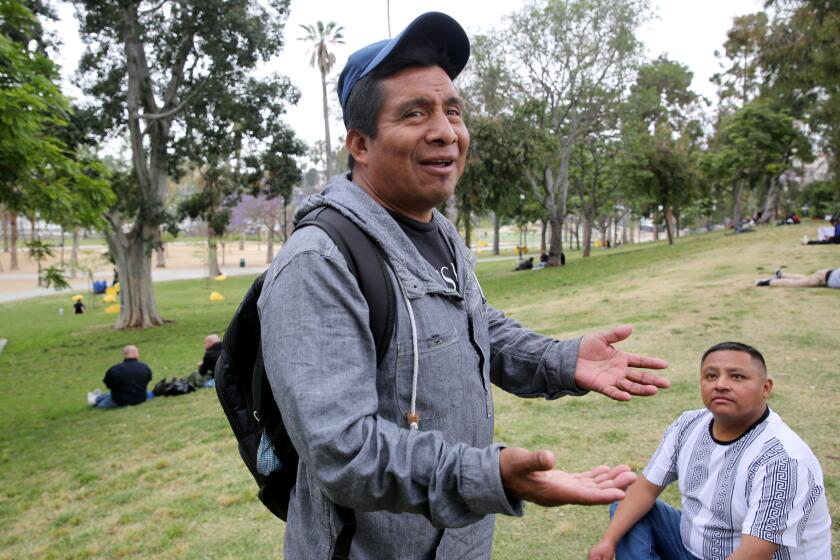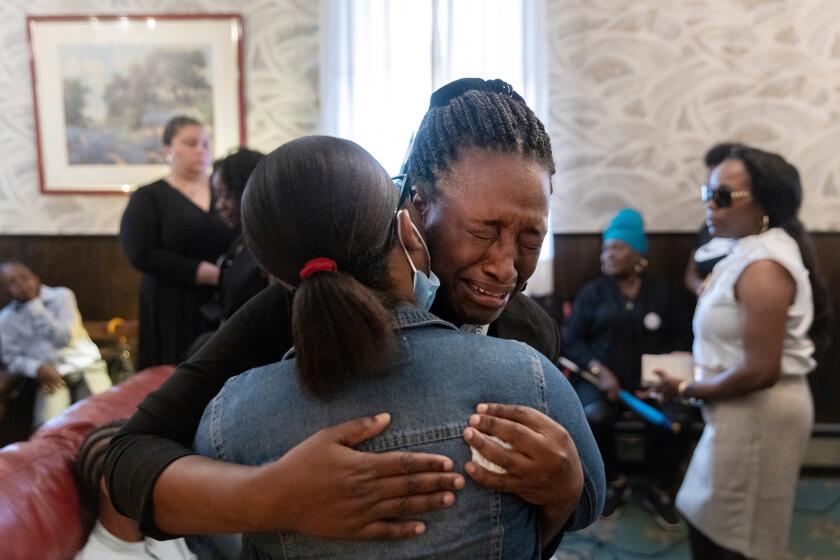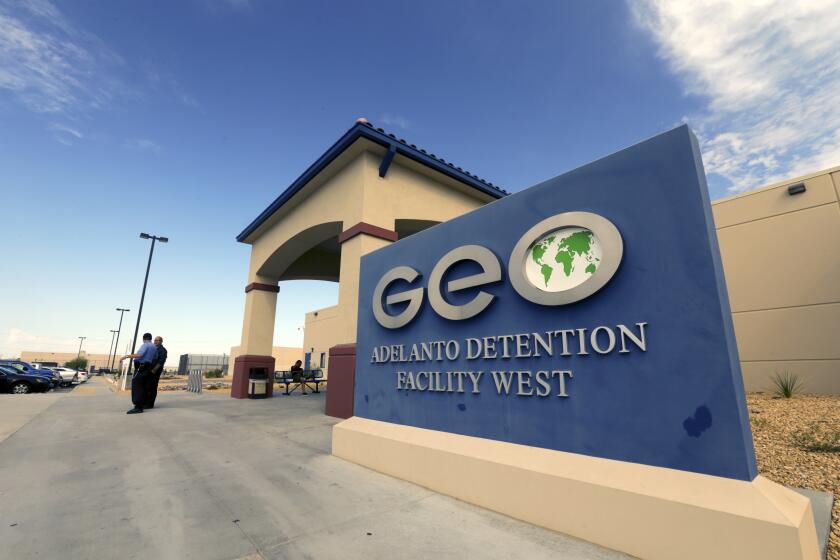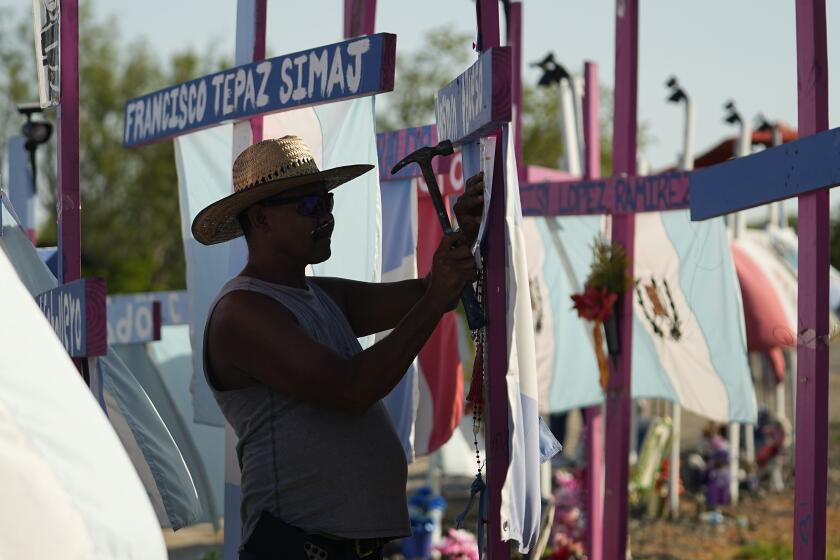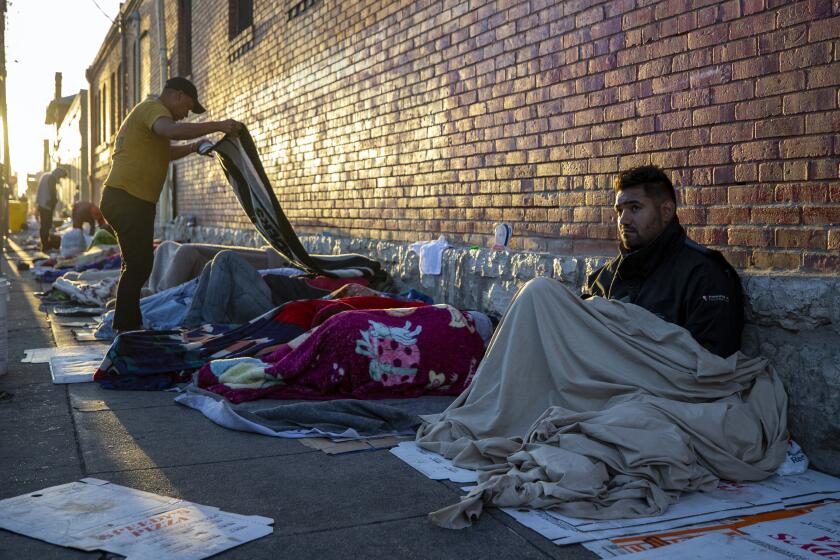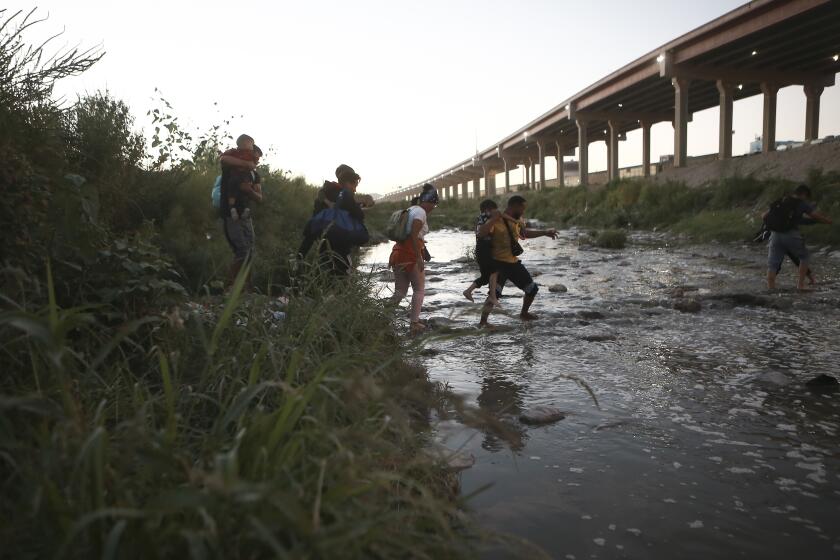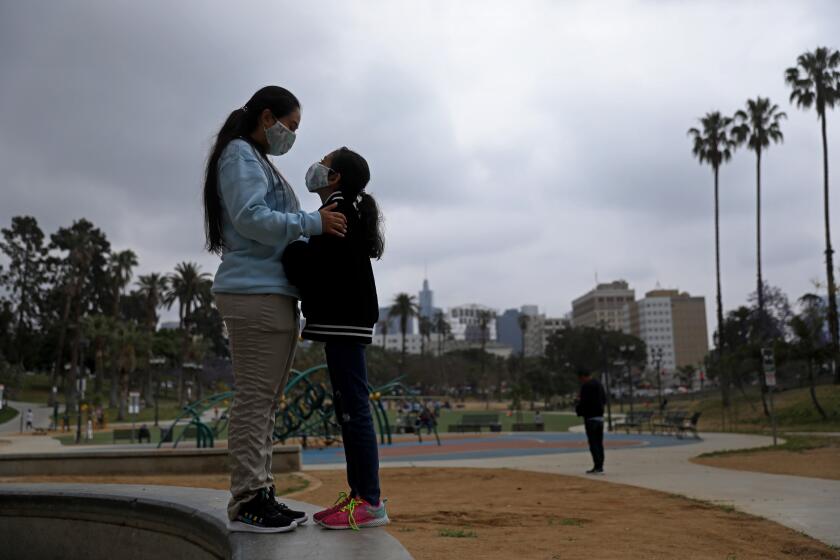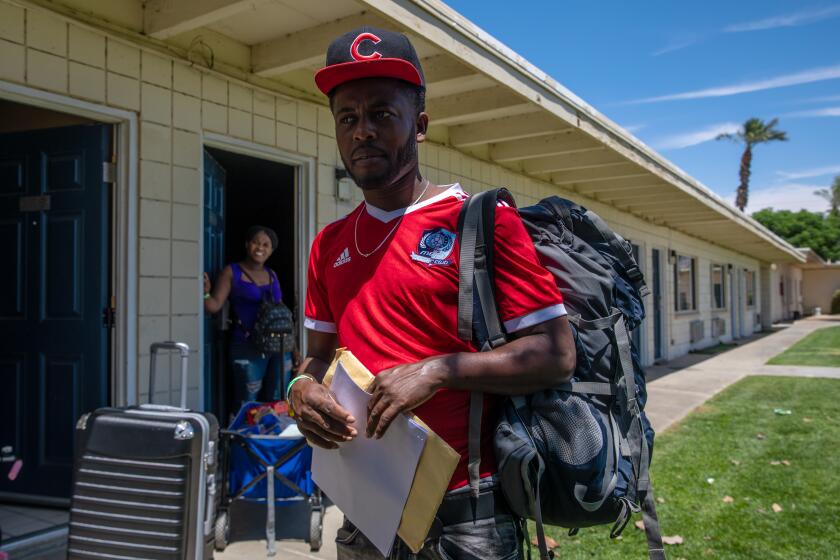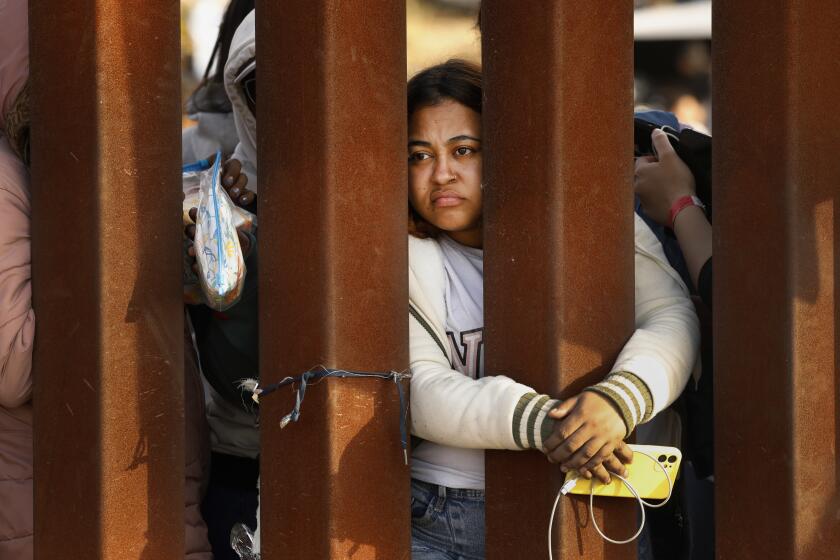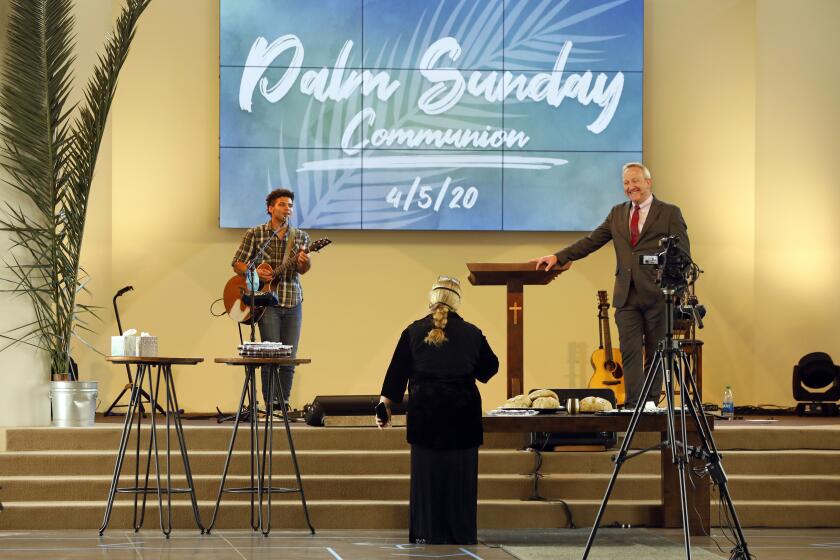This nun defends migrants. She says both Texas and California used them as pawns
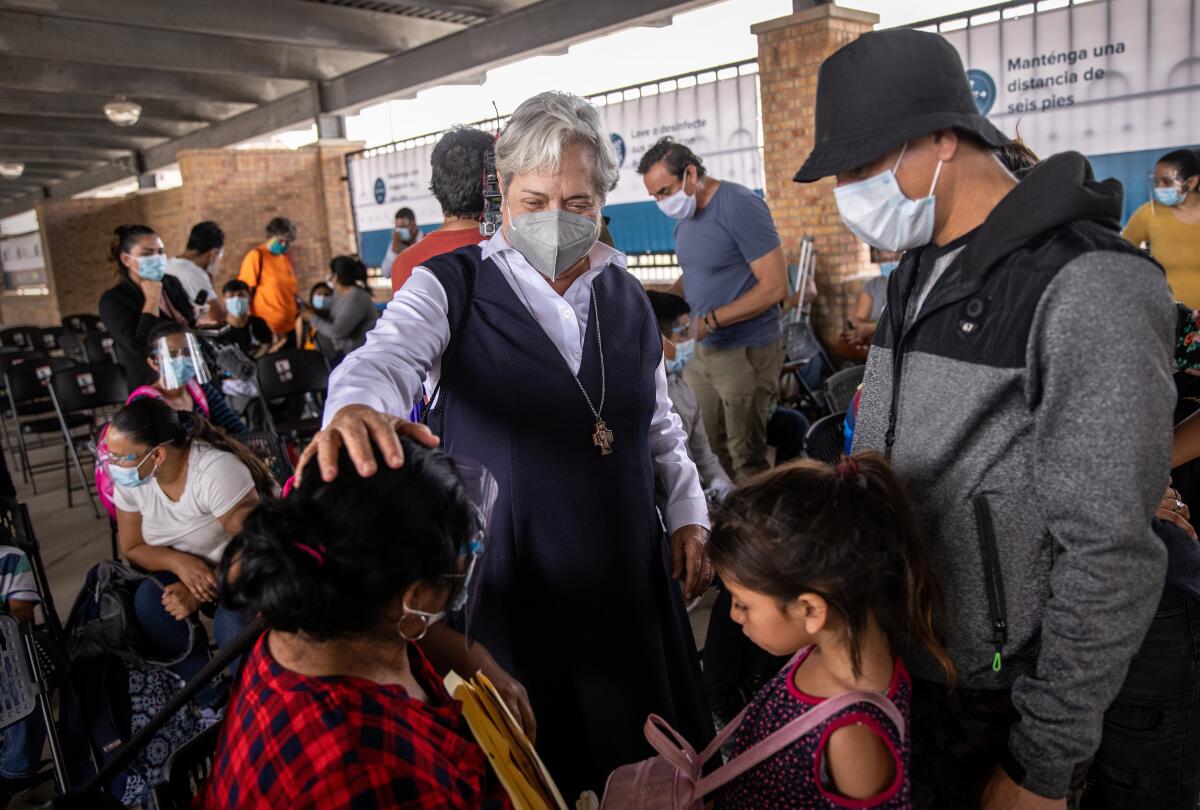
McALLEN, Texas — When a bus carrying 42 migrants from the Texas-Mexico border rolled to a stop in Los Angeles this month, activists and local politicians were quick to excoriate Texas Gov. Greg Abbott.
“It is abhorrent that an American elected official is using human beings as pawns in his cheap political games,” L.A. Mayor Karen Bass wrote in a statement.
But 1,600 miles away in the Texas border city of McAllen, where the migrants had boarded the bus, Abbott had an unexpected collaborator: Sister Norma Pimentel, a prominent migrant aid worker who is sometimes called “the pope’s favorite nun.”
In early May, Pimentel began vetting migrants for the Texas state program that relocates them to various cities around the country.
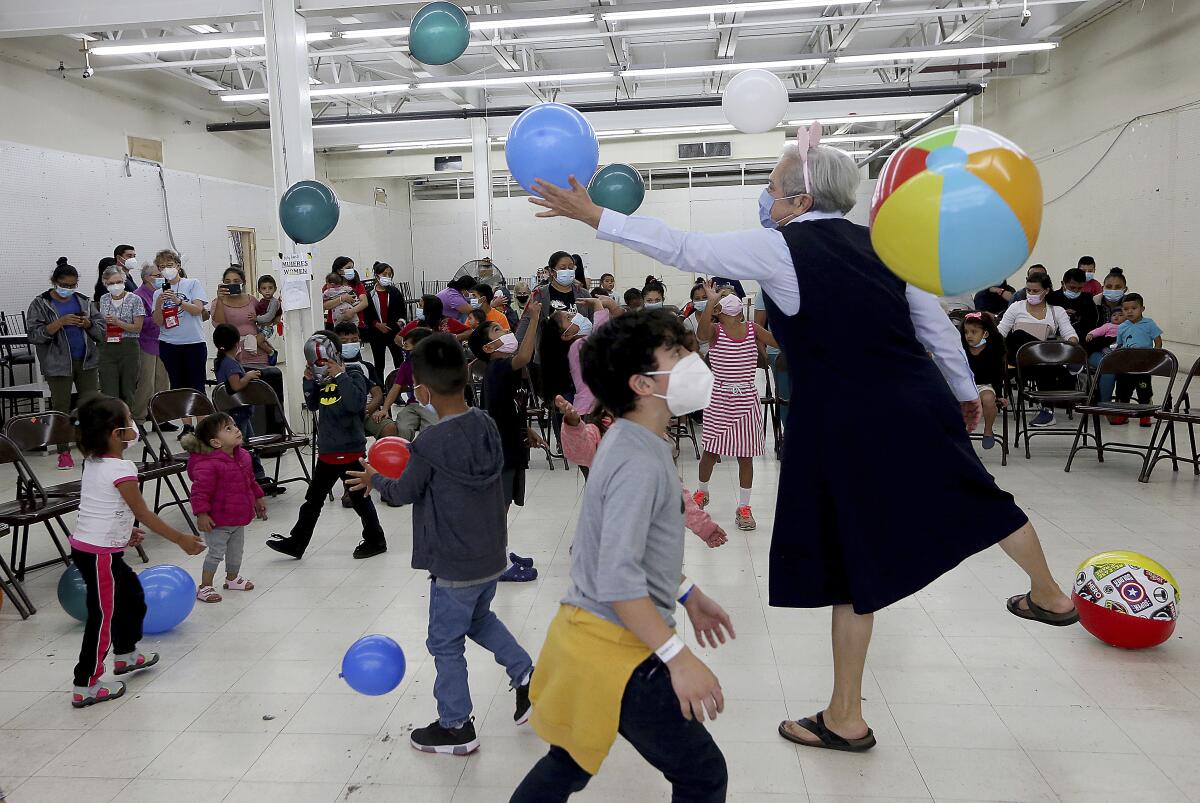
Her willingness to work with Abbott casts light on the turbulent moral landscape that aid workers have had to navigate in recent years. As the border becomes an ever-more toxic political battlefield, the act of helping the vulnerable has meant taking a side. Pimentel has had to decide when to cooperate with border hawks, and when to stand against them.
After the latest bus arrived in Los Angeles, Pimentel concluded that Texas officials could have easily avoided controversy but chose not to. She told them she was done working with them, at least for now.
“I told them we don’t need those buses anymore,” Pimentel, 69, said in an interview Friday.
At the same time, her disappointment also extends to the L.A. activists who may have misrepresented the reality of those who boarded the buses. “They’re more a problem than anything,” she said.
More than 21,600 migrants have been transported across the country from Texas, under a plan hastily instituted by Gov. Greg Abbott last year. Forty-two arrived in L.A. last week.
Parties on both sides of the aisle turned the bus into a political spectacle, rather than cooperating to actually help those on board, she said, adding: “They’re too extreme right, or too extreme left.” To her, the desire for an ideological victory has taken precedence over people.
Asked if she’s frustrated by the furor that followed the bus to Los Angeles, she shakes her head and frowns.
“I don’t think about things,” Pimentel said. “I’m too busy. I have too many people to help.”
::
Hector Valiente was one of those people. The 18-year-old Venezuelan asylum seeker is the caretaker for his younger sister and his father, who is deaf. After a brutal journey through Central America and a month in a tent camp in northern Mexico, the family received permission to cross to Brownsville, Texas, last week.
A number of L.A. Latinos empathize with immigrants bused to California and other liberal cities from conservative states. ‘It’s a blessing,’ one Angeleno said of the new arrivals.
Border Patrol agents there told them about a group of Roman Catholics who might help them. The family made their way to McAllen, to the Humanitarian Respite Center run by the Catholic Charities of the Rio Grande Valley. There they met Sister Norma.
Pimentel was born in Brownsville in 1953 to Mexican parents still waiting to gain their residency. They raised Pimentel and her four siblings in both the United States and Mexico.
In her early 20s, she decided to attend a Catholic prayer group — largely because it included a trip out for pizza afterward. It was in this unlikely place, a Pizza Hut, that she found her calling. A few years later, at 24, Pimentel took her vows as a nun.
The year was 1978. This was the beginning of the “sanctuary” movement, as faith leaders began using churches as refuges for Central Americans fleeing civil wars. In San Benito, a small town west of Brownsville, Pimentel began working at Casa Oscar Romero, a shelter for recent arrivals.
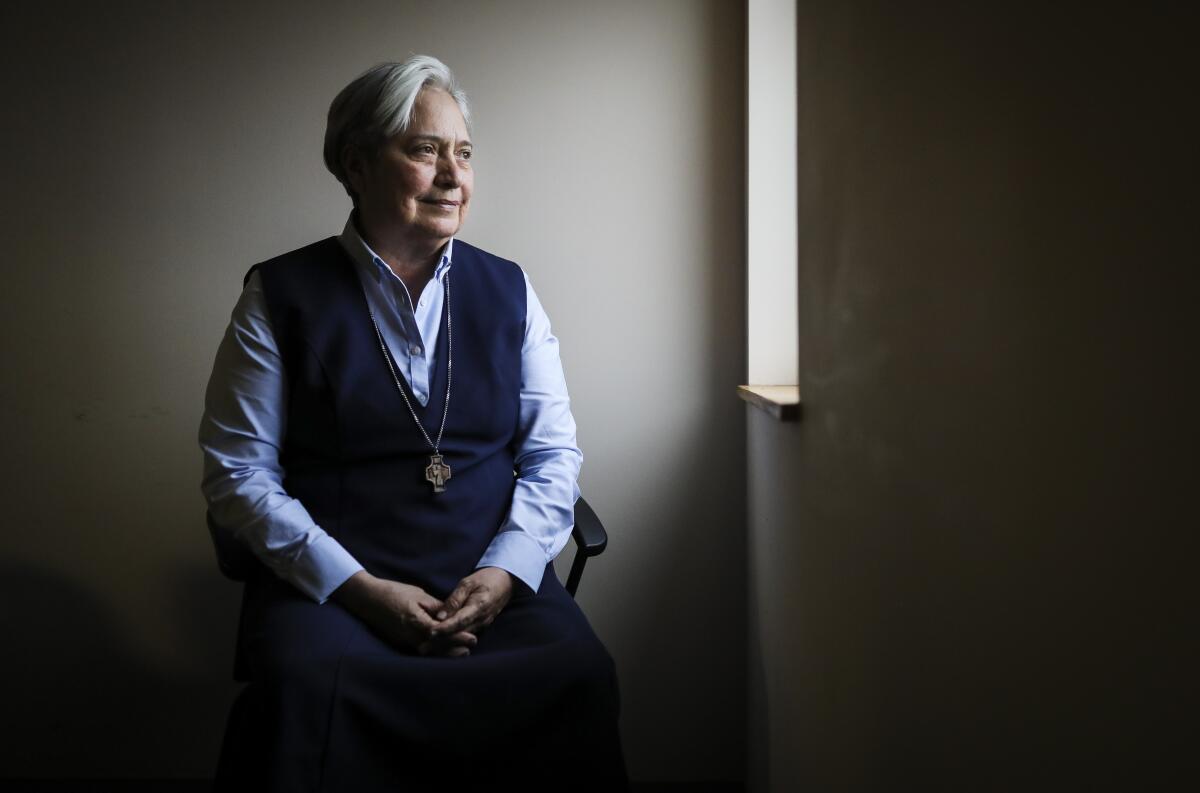
There, Pimentel met people bearing scars from war and fresh scratches from the brush along the river. It changed her.
“It helped me realize that I needed to stand up for what I believe,” she said in an interview last year.
Casa Romero was under constant pressure. In 1986, two shelter workers were arrested, accused of transporting immigrants who lacked legal status, and the city shut it down. When it reopened in McAllen, the Border Patrol raided it.
Pimentel was arrested at a protest challenging U.S. support for far-right soldiers in El Salvador — an event she considers “the definitive moment” of her life. By 2004, the local bishop had chosen her as the executive director of the Catholic Charities of the Rio Grande Valley.
Border Patrol leadership complained about the ‘overuse of hospitalization,’ which investigators worried was costing ‘valuable staff time.’
That put Pimentel on the front lines when a new generation of Central Americans began fleeing to the U.S. Instead of single adults, hundreds of thousands of the asylum seekers arriving were children, traveling alone.
As Pimentel worked to minister to them, she found an unlikely partner: Border Patrol.
In 2014, the agency, desperate for assistance, allowed Pimentel to visit a group of children, all younger than 10, in a McAllen holding cell.
The sight horrified her. The children were so dirty it was hard to distinguish one from the other. She prayed with them, and she cried with them, and, when she looked up at the glass window of the holding cell, she saw the Border Patrol agents standing outside weeping along with them.
Start your day right
Sign up for Essential California for the L.A. Times biggest news, features and recommendations in your inbox six days a week.
You may occasionally receive promotional content from the Los Angeles Times.
“That moment took ahold of me and didn’t let go,” Pimentel said.
Over the last decade, Border Patrol turned to Catholic Charities to help care for the young asylum seekers, find their relatives in the U.S. and reunite them with their families. Pimentel said that despite occasional abuses by agents and headlines portraying the agency at odds with advocates like her, she sees the agents as partners — and as “human beings.”
“I have nothing but high respect for the Border Patrol officers I’ve worked with, who always uphold and respect human life,” she said. “They’re caught as victims of the violence of our society, as we all are, and we must all do our job as best we can.”
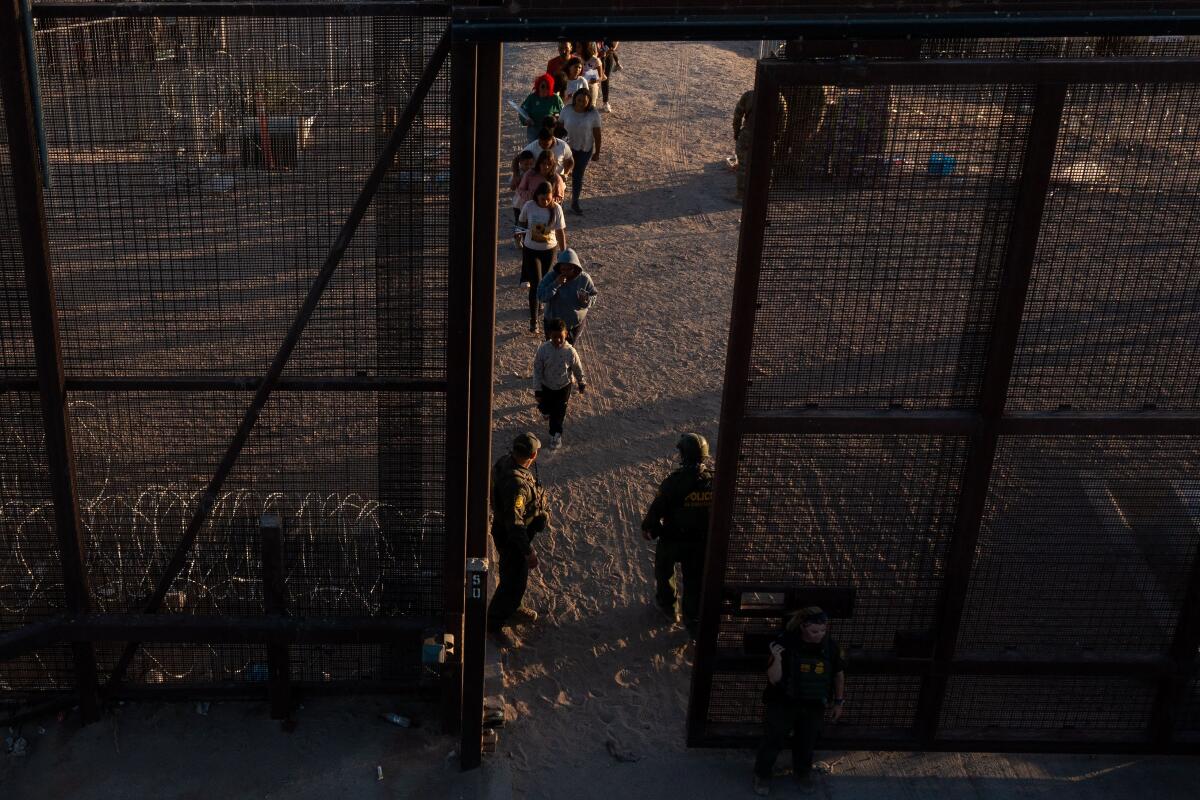
Pimentel’s work with Catholic Charities resonated around the world. She has met with Pope Francis, who released a video message to her in 2021: “Thank you for welcoming and receiving these migrants who come in search of a better life. Some come to advance, while others are fleeing from true social hells. Thank you, Sister.”
She has spoken with reporters from around the world, and in 2020, Time magazine named her one of its 100 Most Influential People.
Pimentel’s collaboration with Border Patrol grew even closer after 2019, when Catholic Charities opened the respite center, where arriving migrants could get new clothes, a shower and a good night’s sleep.
The for-profit immigrant detention ban was enacted amid reports of unsafe conditions and health violations at detention facilities, including moldy food, overuse of solitary confinement and dangerous delays in medical care.
Volunteers also help migrants get in touch with family members across the United States to help raise money for bus and plane tickets.
On the wall of the respite center, a large map of the U.S. hangs next to a list of local airports and bus stations.
“Our goal is to make it a transit space, where they connect with the families and move forward to their final destination,” Pimentel said.
However, for some migrants, this isn’t always possible. That was the position Hector Valiente found himself in last week: “We have no relatives, no one who is our own blood,” he explained.

Subscribers get exclusive access to this story
We’re offering L.A. Times subscribers special access to our best journalism. Thank you for your support.
Explore more Subscriber Exclusive content.
In these rarer instances, volunteers will raise money for travel. But Pimentel said it’s not something they’d be able to offer to everyone. That’s part of why, when Abbott’s administration approached her about using the buses this year, Pimentel had to consider it: A free bus wasn’t something she could turn down.
::
Since April 2022, Abbott’s busing program has transported more than 22,000 migrants from the Texas-Mexico border to an expanding list of Democratic-run cities, including New York, Chicago, Philadelphia and Denver.
Abbott has been candid that the buses are his attempt to protest immigration policies. However, he also has claimed that they relieve the burden on Texas border towns and that they’re even desirable for the migrants themselves.
“Los Angeles is a major city that migrants seek to go to, particularly now that its city leaders approved its self-declared sanctuary city status,” Abbott wrote in a statement released moments after the first bus arrived in Los Angeles.
U.S. authorities have arrested four men who they say were part of a human smuggling effort that ended in the deaths of 53 migrants in San Antonio.
During the program’s early days, Abbott’s administration approached Pimentel and asked if she’d participate. Pimentel turned them down.
“If done correctly, for the right reasons, I think it should be an option, especially for a family stranded in the middle of nowhere,” she said. “Unfortunately, the intent was maybe for the wrong reason — to create chaos, to create confusion, to create crisis rather than provide a solution to a situation with humanity.”
In any case, Pimentel didn’t need the program. At that time, few migrants were actually arriving in the Rio Grande Valley.
The situation changed this April, as the date approached for the end of Title 42 — a controversial Trump-era public health order that has functioned as an asylum ban. Accustomed to fewer than 200 migrants a day, the respite center was suddenly ministering to well over 10 times that.
Migrants in Texas say contractors working for Florida Gov. Ron DeSantis pushed them to board flights to California, promising shelter and immigration aid.
Seeing the strain on the center, McAllen’s recently elected Republican congresswoman, Monica De La Cruz, who ran on a “Build the Wall” platform, approached the nun and said she wanted to help. She asked Pimentel if she’d once again consider working with Abbott’s busing program.
“I told her, ‘Sure, why not?’” Pimentel recalled.
De La Cruz promptly organized a meeting with members of Abbott’s administration, McAllen city officials and Pimentel.
Before the meeting, Pimentel asked migrants at the respite center if they would want to get on buses provided by the governor of Texas.
“There were people that wanted to go — it’s not like I wanted to send them on those buses,” Pimentel said. “They said, ‘I need help. Could you help me get on a bus to Los Angeles, or Chicago, or New York?’ And we could not just say, ‘No! Don’t use those buses,’ when it’s an option to help people.”
At the meeting Pimentel was clear that she had conditions. First, Texas would need to guarantee that everyone volunteering to get on the bus had family or someone else waiting for them. Second, they had to collaborate with cities receiving them, and families and aid workers would need to be ready to receive the passengers.
Sign up for This Evening's Big Stories
Catch up on the day with the 7 biggest L.A. Times stories in your inbox every weekday evening.
You may occasionally receive promotional content from the Los Angeles Times.
The first buses began leaving McAllen in May, headed for the East Coast. Pimentel personally vetted everyone getting on board.
As each bus left, Pimentel would get in touch with the Catholic bishop at its destination and send along a list of who was arriving. Faith-based groups and family members greeted each bus. Pimentel said several passengers who called days later seemed happy with the decisions.
She was pleased.
::
Things changed when the first bus rolled into downtown Los Angeles on June 14.
Weeks earlier, Pimentel and Catholic Charities had alerted the Los Angeles Archdiocese and other local migrant aid groups to be ready for such an arrival.
A new Biden administration policy has dramatically lowered the percentage of migrants at the southern border who enter the U.S. and are deemed eligible for asylum.
When the bus actually took off, Pimentel said she sent word that it would arrive the next day.
As the bus made its way west, Catholic Charities of L.A. called Pimentel with an urgent request. The drop-off location needed to change: Instead of Union Station, as was originally planned, there would be a parish ready, where aid workers and families would be waiting.
Pimentel immediately called Texas state officials.
“I asked them, ‘Please, I need the bus not to go to Union Station. I said there’s going to be a lot of media and a lot of controversy there, and to please direct the bus to this other location,’ ” Pimentel said. “But they refused to accept that change.”
Texas Gov. Greg Abbott and Florida Gov. Ron DeSantis are wrong if they think that sending migrants to California and other states will cause disarray and shake their commitment to sanctuary policies
Her worries about Union Station proved correct: The bus’ arrival ignited a media storm. Asked if she thinks the state decided to drop the migrants off at Union Station precisely because of the spectacle it would create, the nun was both quick and diplomatic with her answer.
“The possibility is there,” she said. “I don’t know.”
Whatever Texas’ motivation, Pimentel told state officials that she would no longer board migrants onto the buses.
The decision was made easier by the situation along the border. Despite worries that arrivals would skyrocket when Title 42 ended last month, just a couple of hundred migrants are currently passing through the respite center each day.
The Latinx experience chronicled
Get the Latinx Files newsletter for stories that capture the multitudes within our communities.
You may occasionally receive promotional content from the Los Angeles Times.
If the numbers increase again, Pimentel said, she’d consider using the buses again. In the meantime, state-sponsored buses have continued to leave from nearby Brownsville, and if migrants want to get on board, she’ll advise them to go there.
Asked if she was frustrated with the state government, Pimentel said she wasn’t.
“Frustrating? No,” she said. “It’s disappointing that they were not willing to cooperate with us.”
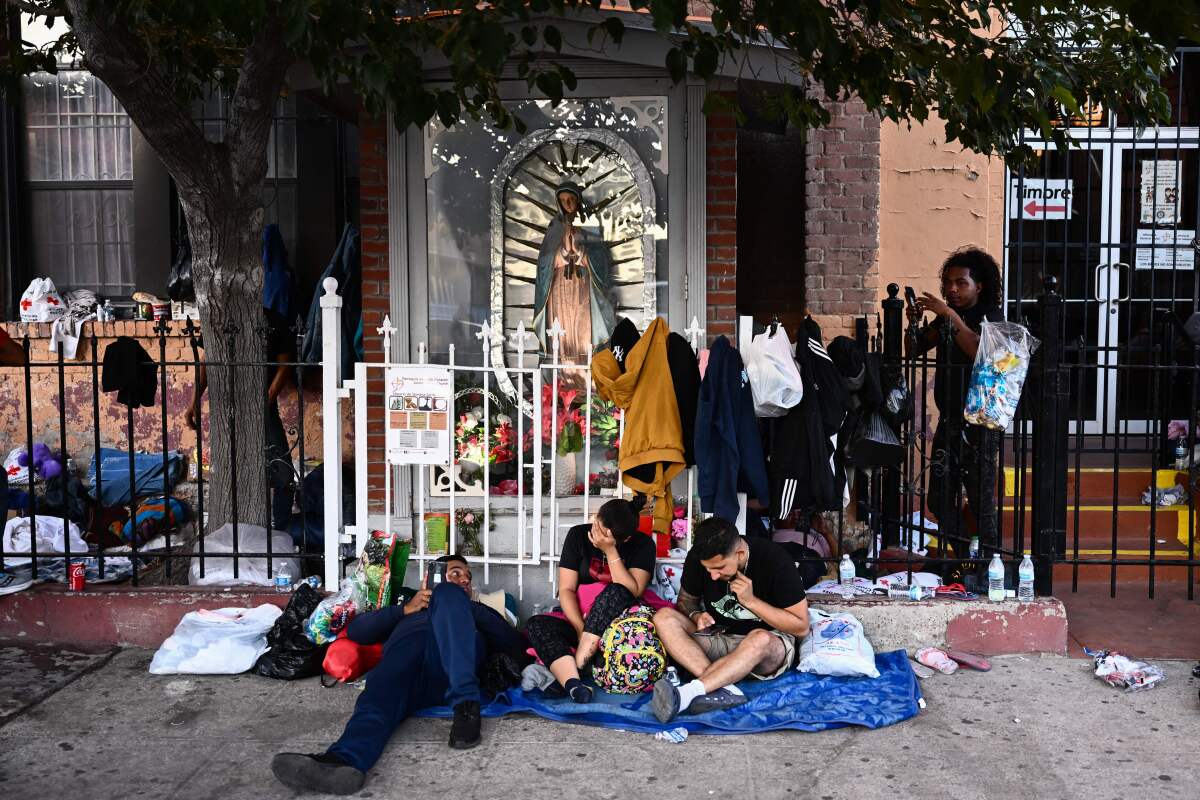
Pimentel said she felt equally let down by the activists in Los Angeles.
She believes that a negative narrative was already forming before the bus even left McAllen. Soon after it pulled away, advocates in L.A. began calling her, asking if the migrants had been given food. Pimentel replied, patiently, that of course they had: Catholic Charities packed each of them a knapsack full of hamburgers, snacks and water, and the state provided the migrants with water and military-style meals-ready-to-eat on the buses.
When the bus arrived, local advocates who greeted the passengers issued statements condemning the lack of coordination announcing the bus’ arrival and implied that the migrants on board were mistreated.
“The cruelty of this process is unbounded,” Jorge-Mario Cabrera, director of communications for immigrant rights group CHIRLA, told the Los Angeles Times. “We know that [the passengers] are traumatized and they need a number of services.”
In one immigrant shelter in Riverside County, the shifting patterns of immigration and the pending needs are visible.
Cabrera, when asked this week, reaffirmed that passengers arrived “very tired, anxious, thirsty and hungry.”
“But they did not seem distraught or lost,” Cabrera said in an email. “Most folks who arrived on the June 14 bus had connections in Los Angeles and that is a silver lining in what can otherwise be labeled as the games of small-minded individuals.
“Busing migrants to make a political point, to stick it to a city or state, is just petty and flies against any American value,” he said. “No matter how you describe it, there is no silver lining to cruelty.”
Lindsay Toczylowski, executive director of the Immigrant Defenders Law Center, said that no matter what Pimentel told the migrants about the nature of Abbott’s buses, it’s questionable whether they could offer meaningful consent. “Giving someone that choice, when they’re in that desperate of a situation, is a false choice,” she said.
Migrants waiting in border towns have increasingly turned to TikTok, Facebook, YouTube and other social media sites for updates on how the expiration of immigration policy Title 42 will affect them.
One mother on the bus, interviewed a few days after the bus’ arrival, described the journey as arduous and demeaning. She had been given chips, water and energy bars before boarding and military-style meals once in transit. Her 10-year-old daughter came down with diarrhea.
Pimentel said she has questions about the narratives that have emerged about the migrants on the Los Angeles bus.
“There was an interest to question the outcome — to say they were neglected, they were not fed,” she said. “I don’t know how true that is — or if they were trying to make a point that the state buses were used in a negligent way.”
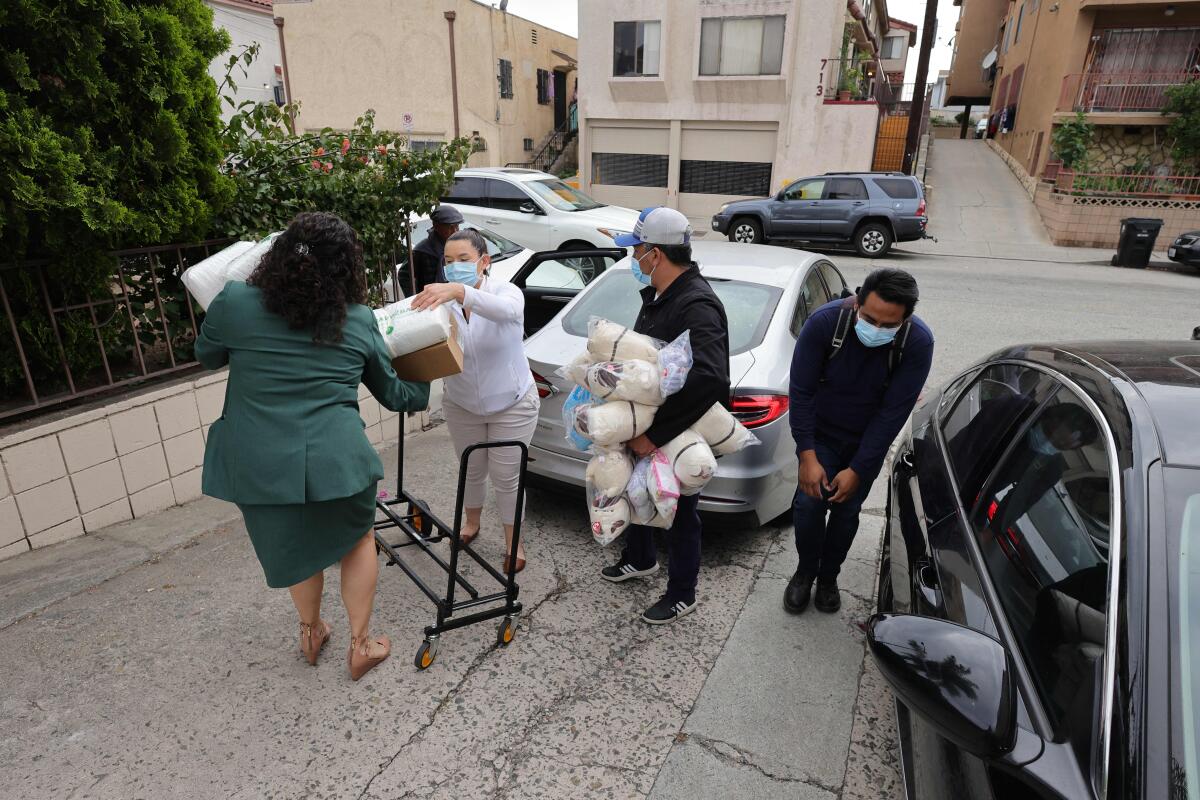
Now, migrants at the respite center who want to reach L.A. will need to contact their families and try to raise their own money to buy tickets.
On Friday, Valiente and his family prepared to board a bus to New York, where a friend they had met along their journey had a nephew. Catholic Charities had found a benefactor to pay for their tickets.
“We couldn’t have made this journey without these people’s help,” Valiente said.
Pimentel sighed and shook her head. She said the Texas-led busing program would have continued to be a useful option for her if Texas had been more open to coordinating with cities like L.A.
“But they said no,” she said, before walking away to meet with families in the part of the respite center that serves as a shelter.
“We take what we can,” she said.
More to Read
Sign up for This Evening's Big Stories
Catch up on the day with the 7 biggest L.A. Times stories in your inbox every weekday evening.
You may occasionally receive promotional content from the Los Angeles Times.
